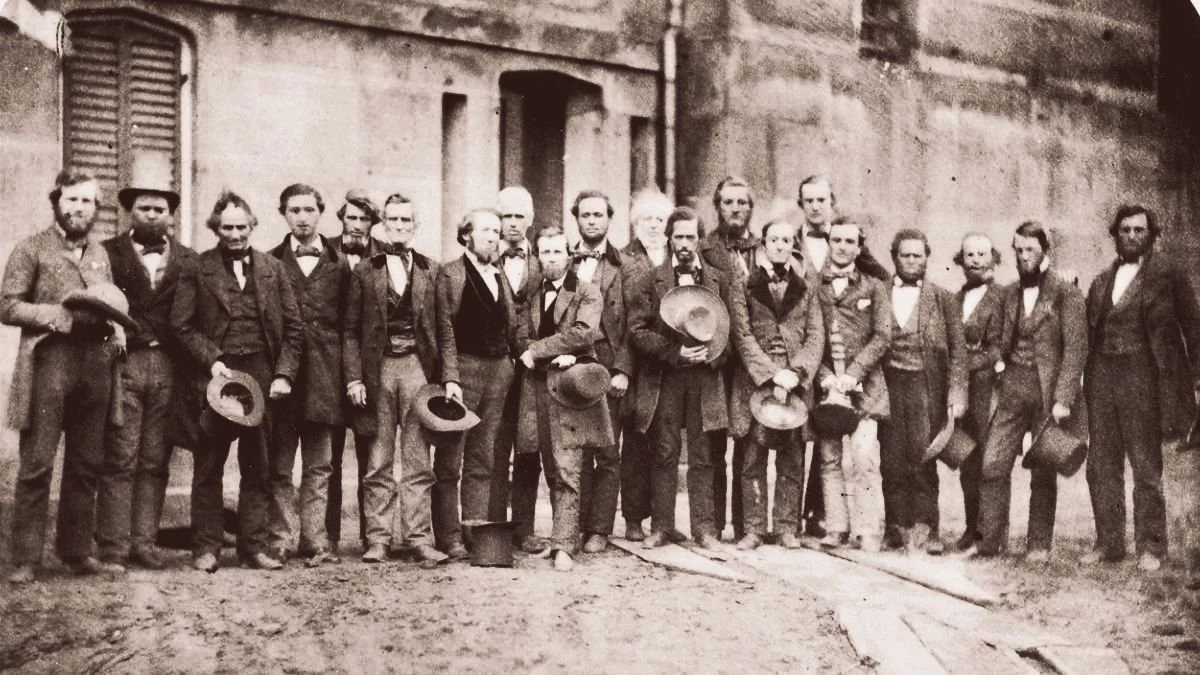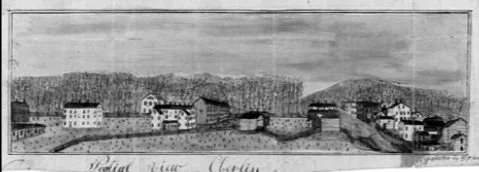November’s Oberlin-Wellington Rescue Newsletter: The Story
Our website is live!
You can see more of us there, including the current team, upcoming journal posts and events, and photos from past events. Visit now at The Oberlin Wellington Rescue Theater Project (owrproject.org)!
The Story:
Written about in The Town That Started the Civil War, by Nat Brandt, the Oberlin-Wellington Rescue has largely gone unrecognized by historians but remains a cornerstone in American abolitionist history. Named for the two towns the rescue spanned, this tale tells the story of one John Price…
The Oberlin Rescuers at the Cuyahoga County Jail in April 1859, courtesy of The Oberlin College Archives.
More to come on the diverse community of rescuers and abolitionists of Oberlin… stay tuned!
The town of Oberlin has always been a hotbed of abolitionism. With a vibrant community of free and formerly enslaved Black people, white Oberlin townspeople, and faculty and students of Oberlin College, there was an established and longstanding tradition of sanctuary and solidarity even in 1858, when our story takes place.
Seeking refuge, a young Black man named John Price, who had been enslaved in Kentucky, relocated to Oberlin and began a life here. Black and white townspeople alike helped him escape his bonds via the Underground Railroad, and when Kentuckian slave catchers came to retake his freedom, community members united to free him.
Upon hearing the news of his capture, Oberlin residents immediately rode to Wellington. Amongst those that came were a number of prominent figures including Charles Langston (one of the first Black students admitted to Oberlin, who later became the grandfather of poet/playwright Langston Hughes); James Fitch (bookseller and superintendent of the Oberlin Sunday School) and John Watson (a Black grocer and businessman). Watson led the charge into town, yelling "Kidnappers!" The Kentuckians, alarmed, hid Price in the attic of a hotel, while the Columbus deputies collected a posse to guard the doors.
From the Archives:
No enslaved people were ever able to be taken from Oberlin due to the fortitude and resilience of the community. Sketch courtesy of the Oberlin College Archives.
A mob gathered, demanding Price's release. Langston and Watson sought legal action, trying to persuade the village constable to arrest the slave catchers for kidnapping, and to secure a writ of habeas corpus. These attempts failed. Langston tried to calm the crowd and talk to Price's captors. When the kidnappers would not give Price up, Langston claimed, "We will have him anyhow." The crowd rushed the guards and a struggle broke out, allowing Price to be hurried outside to a buggy and back to Oberlin. Price was hidden in the home of the Oberlin College president until he was taken across the border to Canada. Thirty-seven of the rescuers were arrested.
Throughout the trial, those who had defended Price stayed in jail as an act of solidarity with Langston and Simeon Bushnell (a white bookstore clerk), both of whom had been convicted. From prison, they printed a newspaper entitled The Rescuer, and challenged the constitutionality of the Fugitive Slave Act, which allowed for the capture and return of enslaved people seeking freedom and levied harsh punishments on anyone who interfered. The constitutionality of the Act was narrowly upheld by the Ohio Supreme Court, a decision that so angered abolitionists, more than 10,000 people staged a protest march in Cleveland. Eventually the men who had captured John Price were arrested and charged with kidnapping, and subsequently the charges were dropped. John Price was taken to Canada soon after, in the hopes of finally attaining the freedom he had been seeking for so long.
Source: Adapted from article on The Oberlin Electronic Group
Stay involved!
We're asking for your help growing this project and our community. If you have any suggestions or are otherwise interested in helping during this period of research, please reach out to us!

![[Banner] Announcements](https://images.squarespace-cdn.com/content/v1/6138efcc1f01482d7cfceaed/513d12dc-e41d-4443-a70b-9969c32f7a68/Add+a+heading+%28600+x+100+px%29+%28500+x+100+px%29+%2819%29.png)
![[Banner] Featured Article](https://images.squarespace-cdn.com/content/v1/6138efcc1f01482d7cfceaed/ad2f57dc-a638-4a61-9e55-9b8c63573b79/Add+a+heading+%28600+x+100+px%29+%28500+x+100+px%29+%2823%29.png)

